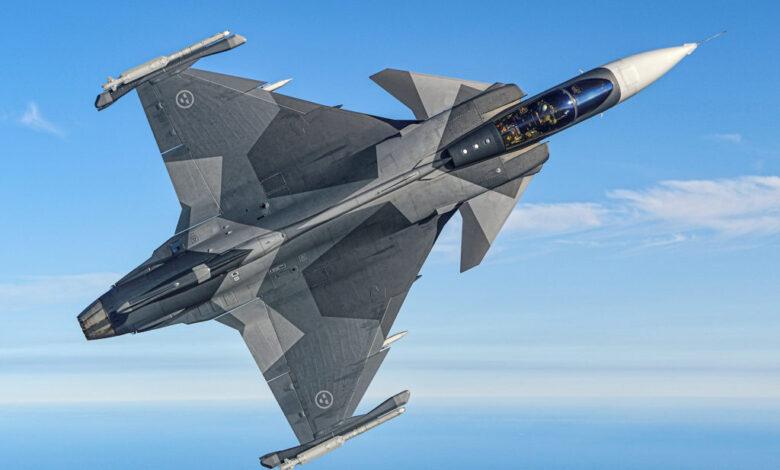An unmanned fighter jet with AI has been tested in Europe and is being prepared to be put into production

Munich-based startup Helsing has reported two successful test flights of the Saab Gripen E fighter, fully controlled by artificial intelligence. The company expects unmanned fighters to enter European air forces within the next few years, informs Financial Times.
In May and June over the Baltic Sea, the Centaur AI software fully controlled the flights of the Swedish Gripen E. The instructor pilot was in the cockpit only as a precaution.
According to Stephanie Lingemann, Helsing’s senior director of aviation, the AI system is capable of accumulating “a million hours of flight experience” in less than three days of simulation, while a top pilot’s career experience typically does not exceed 5,000 hours. The company claims that its technology already demonstrates a “superhuman” reaction in critical situations and allows to reduce risks for pilots during dangerous operations.
Despite the ethical debate surrounding autonomous weapons, Helsing’s leadership emphasizes that the final decision to open fire should be made by a person — especially in “hybrid” conflicts, where combat operations are often conducted close to civilian infrastructure. In the case of a large-scale war with an equal adversary, the possibility of full autonomy may be reconsidered.
Helsing, valued by investors at €12 billion, raised €600 million in a June investment round led by Spotify founder Daniel Eck’s fund. The company already supplies Ukraine with 10,000 attack drones and software, and is also working on the creation of unmanned underwater vehicles.
After the start of a full-scale war in Ukraine and calls by the US to strengthen European defense capabilities, interest in autonomous combat systems has grown significantly. The USA, China and Russia are working on similar projects. In NATO, such direction is already called “paradigm of the new air war”.
European governments are investing billions in the development of AI-based weapons in an effort to keep up with the world’s leading military powers and reduce dependence on imported solutions. If the Helsing trials continue successfully, the first unmanned “smart” fighters could be in service by 2030.





